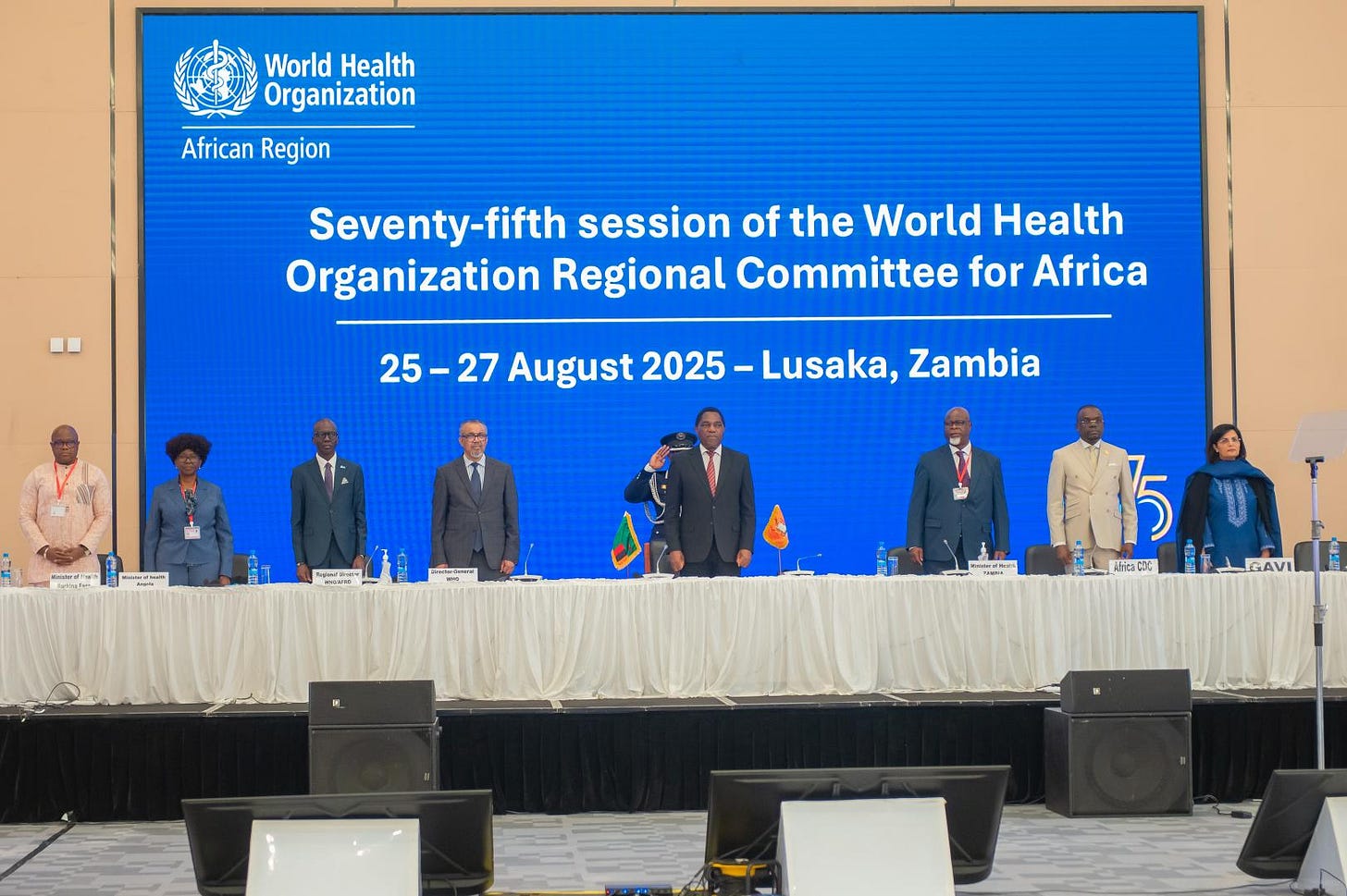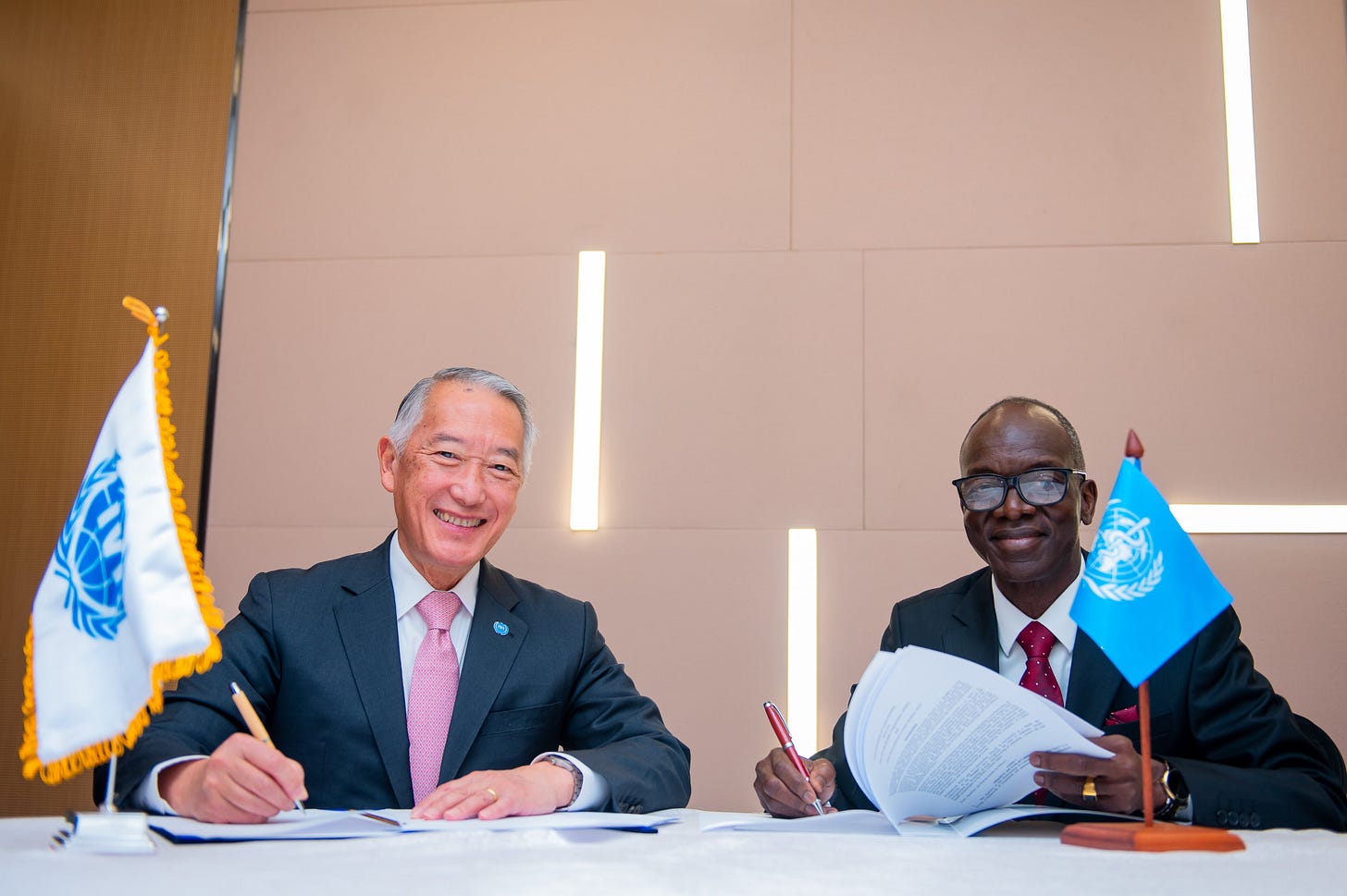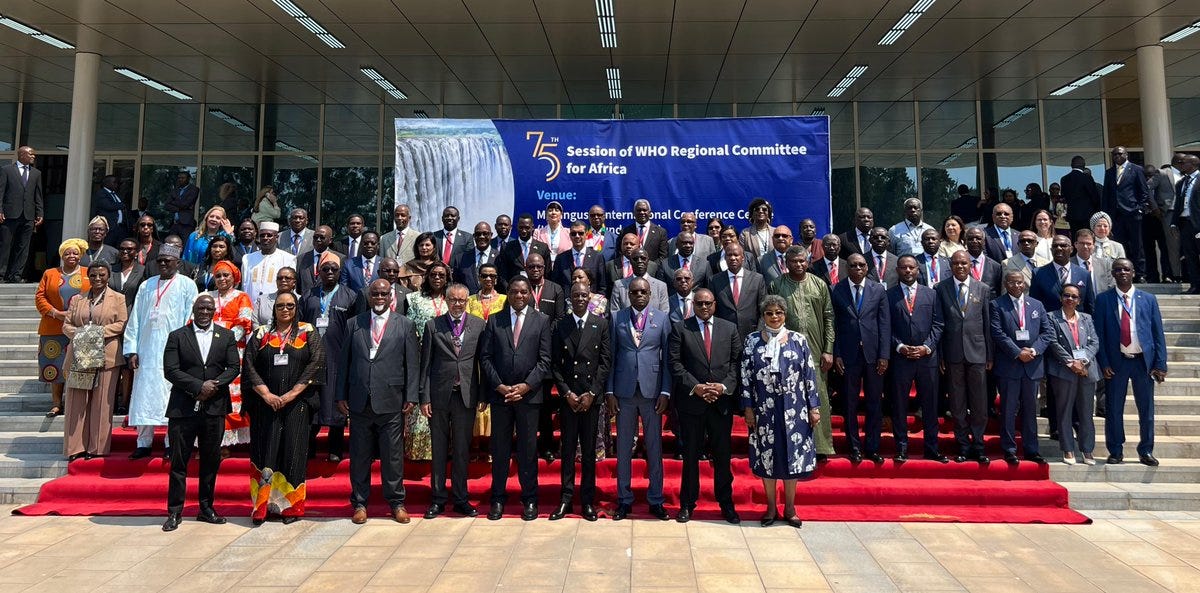In 2020, as COVID-19 vaccines began rolling out globally, Africa found itself at the back of the line, with limited access and delayed deliveries. During a side event at the 75th WHO Africa Regional meeting, WHO, Gavi, and African partners came together to discuss strategies to boost local vaccine production and strengthen health security.
Africa’s experience during the COVID-19 pandemic showed that the continent cannot continue to rely on global supply chains for its health security. When the COVID-19 vaccine first became available in late 2020, high income countries representing just 14% of the world’s population, secured more than half of the global vaccine supply. As a result, Africa received less than 2% of the 690 million doses administered in the first quarter of 2021. Deliveries were often unpredictable, leaving countries uncertain about which vaccine would arrive, or when.
For months, frontline health workers and vulnerable populations in Africa watched other regions roll out mass vaccination campaigns. Even as vaccine deliveries gradually increased, Africa lagged behind, accounting for just 1% of the global vaccine production despite making up 17% of the world population.
At the 75th WHO Africa Regional meeting in August 2025, during the side event “Partnerships for Strengthening an Ecosystem Approach to Production of Medicines, Vaccines and Other Health Technologies in Africa and the GAVI-Leap,” Professor Mohammed Janabi, WHO Regional Director for Africa, emphasised WHO’s longstanding efforts to address Africa’s vaccine needs. He noted that the African Vaccine Regulatory Forum (AVAREF), the Regional Office has worked closely with national authorities to build the regulatory foundations for local production. According to Professor Janabi, “Today, eight countries, Ghana, Nigeria, Rwanda, Senegal, South Africa, Tanzania, Zimbabwe, and Egypt have reached WHO Maturity Level 3.” This progress not only builds confidence in local manufacturing of medicine and vaccines but also promotes economic development and brings Africa closer to self-reliance.
The Gavi Leap: shifting power to African countries
The COVID-19 pandemic exposed Africa’s dependence on global vaccine supply chains. Gavi’s new initiative, Gavi-Leap, however signals a shift toward putting African countries in the driver’s seat. As Gavi CEO Dr. Sania Nishtar explained during the panel session, the principle behind Leap is country centricity.
“We’ve put more resources at the decision-making discretion of countries, because we respect your decision-making ability. We know you have your own vision, you know your own problems, and we want to be able to put more money at your discretion, to use as you deem fit”
~ Dr. Sania Nishtar, CEO Gavi
In practical terms, the ‘leap’ is about breaking down barriers that have long slowed down governments. Gavi operates eight grant windows, each with its own timeline, forcing ministries of health to juggle overlapping applications. However, from 2026, this will change, and countries will be able to submit a single, unified application, replacing the fragmented process with a more coordinated and streamlined system.
Gavi is also priortising faster decision making. “Currently it takes 16 months for us to turn around your application. We’ve made significant internal changes to adopt end-to-end automation, change our decision-making structures, ensure decision-making is more streamlined without compromising controls, so that the time it takes for us to get to you with decisions is reduced,” Dr. Nishtar explained.
Beyond governance reforms, Gavi-Leap is also unlocking Africa’s vaccine manufacturing potential. This initiative includes the African Vaccine Manufacturing Accelerator (AVMA), a $1.2 billion subsidy mechanism that provides milestone payments to African producers once they achieve WHO pre-qualification and compete in tenders. As Dr. Nishtar emphasised, AVMA is not a “silver bullet,” but an important tool which, when combined with the right policies, incentives, and off-take agreements, can help move Africa closer to vaccine sovereignty within the next five years.

World Health Organisation Director-General, Dr. Tedros Adhanom Ghebreyesus welcomed the initiative, calling it an important step toward improving vaccine access and strengthening local production in Africa.
As part of Gavi’s 6.0 replenishment cycle, donors have recently pledged more than $9 billion to support the Alliance’s work over the next five years, alongside a $2 billion commitment from the African Export-Import Bank to finance health product manufacturing.
WHO AFRO and IVI: a path to African-led vaccine development
During the regional meeting, WHO AFRO announced a collaboration with the International Vaccine Institute (IVI), a global research body with 56 member states. IVI is recognised for developing the low-cost oral cholera vaccine, which it transferred to manufacturers worldwide without licensing fees. As Dr. Jerome Kim, Director-General of the International Vaccine Institute, explained “We’ve heard about the need for a simplified rural cholera vaccine. That is an IVI vaccine developed in our laboratories, with technology transferred to companies around the world, no licensing fee, no IP. Why? Because this is our commitment to technology, technology transfer and the work we do in global health.”

IVI has already conducted 14 technology transfers of six different vaccines, including to South Africa’s Biovac, which could become the first new vaccine manufactured on the continent since the yellow fever vaccine at IPD.
Backing this effort, Professor Drew Weissman, pioneer of mRNA vaccine technology, pledged $50 million and open access to intellectual property to support end-to-end RNA vaccine and therapeutic development across the continent. This partnership offers an opportunity for Africa to gain access in not just vaccine production but also in intellectual property, data, and training that empowers local scientists to lead research and development.
Why this matters
Africa’s reliance on imported vaccines and therapeutics is nothing new. However, initiatives like Gavi-Leap, the African Vaccine Manufacturing Accelerator (AVMA), and the WHO AFRO–IVI partnership represent solid steps toward reducing external dependency. By building local production capacity, transferring technology, and empowering African scientists and researchers, these efforts aim to strengthen the continent’s ability to respond to health emergencies, improve access to essential vaccines, and participate more in global health research and innovation.


